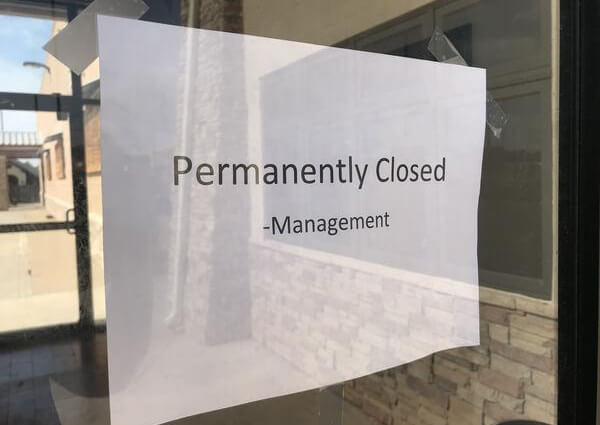What does preventing debtor bankruptcy through liquidation, restructuring, and reorganization encompass?
Preventing debtor filing necessitates taking proactive measures to avoid a debtor filing bankruptcy, which might otherwise result in liquidating assets under Chapter 7 or reorganizing under Chapter 11 of the United States Bankruptcy Code. These measures include negotiating with the debtor to reach an out-of-court settlement or creating a restructuring plan that addresses the debtor’s financial difficulties without resorting to bankruptcy proceedings.
For example, a creditor might work with a debtor to modify loan terms, such as extending the repayment period, lowering the interest rate, or providing additional collateral. This approach can benefit both parties by preventing the debtor from filing for bankruptcy and preserving the creditor’s interests. If successful, this out-of-court solution can be formalized through a legally binding agreement, ensuring that the debtor adheres to the new terms and avoids filing for bankruptcy.
Need a bankruptcy law advocate? Schedule your consultation today with a top bankruptcy and restructuring attorney.
Which Florida laws and regulations apply to preventing debtor bankruptcy through liquidation, restructuring, and reorganization?
In Florida, the relevant laws and regulations derive primarily from the United States Bankruptcy Code, which establishes the framework for bankruptcy proceedings at the federal level. Additionally, Florida’s Uniform Commercial Code (UCC) governs secured transactions in the state, including the rights of creditors and remedies available when a debtor defaults on their obligations.
How do liquidation, restructuring, and reorganization plans connect to bankruptcy?
Liquidation, restructuring agreements, and reorganization plans are proactive approaches secured creditors use to avoid potential losses associated with bankruptcy proceedings against debtors. Creditors, especially those with secured interests, have a vested interest in preventing bankruptcy filings to protect their interests and maintain the value of the debtor’s assets.
When creditors opt for out-of-court settlements or restructuring agreements, they work closely with the debtor to negotiate new terms, often involving modifications to loan repayment schedules, interest rates, or collateral. These agreements can be a mutually beneficial alternative to bankruptcy, as they prevent the debtor from filing for bankruptcy while preserving the creditor’s interests.
When a set of facts is appropriate for bankruptcy services, there are many paths a claimant may take. We are value-based attorneys at Jimerson Birr, which means we look at each action with our clients from the point of view of costs and benefits while reducing liability. Then, based on our client’s objectives, we chart a path to seek appropriate remedies.
To determine whether your unique situation may necessitate litigation or another form of specialized bankruptcy advocacy, please contact our office to set up your initial consultation.
What legal exposure do creditors face when preventing debtor bankruptcy through liquidation, restructuring, and reorganization?
Consider the following forms of exposure:
- Preferences: When negotiating an out-of-court settlement, secured creditors must be cautious of creating a preferential transfer, which could be subject to clawback if the debtor later files for bankruptcy. Section 547 of the Bankruptcy Code governs preferences and outlines a look-back period during which these transactions may face scrutiny.
- Fraudulent transfers: Under Section 548 of the Bankruptcy Code, creditors must avoid engaging in or benefiting from fraudulent transfers. These transactions be void if the debtor subsequently files for bankruptcy.
- Automatic stay violations: If the debtor files for bankruptcy after the execution of a restructuring agreement, the automatic stay imposed by the Bankruptcy Code might limit the creditor’s ability to enforce their rights, potentially resulting in a violation of the stay.
- Subordination: In the event of a debtor’s bankruptcy filing, secured creditors might face risks related to the subordination of their claims, which could lead to diminished recovery or potential loss of collateral.
- Adequate protection: Secured creditors must ensure that any restructuring agreements provide adequate protection for their interests in the debtor’s assets, as required by the Bankruptcy Code.
- Challenges to collateral: Creditors should be aware of potential challenges to their collateral, such as lien avoidance or disputes over the validity of security interests, which could arise during the negotiation or execution of out-of-court settlements and restructuring agreements.
Please contact our office to set up your initial consultation to see what forms of legal protection and advocacy may be available for your unique situation.
How should bankruptcy counsel facilitate liquidation, restructuring, and reorganization efforts?
Counsel should consider the following to protect their clients:
- Perform due diligence: Thoroughly review the debtor’s financial situation, assets, and liabilities to identify potential risks and determine the feasibility of an out-of-court settlement or restructuring agreement. This process should include reviewing the debtor’s UCC filings.
- Negotiate carefully: Engage in good faith negotiations with the debtor and other stakeholders to reach mutually beneficial agreements, ensuring that the terms of the agreement do not inadvertently create preferential transfers or fraudulent transfers.
- Document everything: Properly document all agreements, amendments, and communications between the debtor and the creditor to create a clear paper trail, which can help defend against potential litigation or bankruptcy disputes.
- Monitor the debtor’s performance: Keep a close eye on the debtor’s financial performance and compliance with the restructuring agreement. Then, swiftly address any potential defaults or issues to prevent further complications.
Frequently Asked Questions
- Can a secured creditor force a debtor into bankruptcy to protect their interests?
Although secured creditors generally cannot force a debtor into bankruptcy, they can file an involuntary bankruptcy petition against the debtor under Section 303 of the Bankruptcy Code if they meet the associated requirements. However, involuntary bankruptcy is rare and may not always be the best strategy for protecting the creditor’s interests.
- Can a debtor’s other unsecured creditors challenge the validity of a restructuring agreement?
Unsecured creditors may challenge a restructuring agreement if they believe it unfairly disadvantages them or violates their rights. For example, they might argue that the agreement constitutes a preferential transfer or fraudulent transfer under the Bankruptcy Code or that the secured creditor receives more than its fair share of the debtor’s assets.
- How can a creditor ensure their security interest is perfected and protected in the event of the debtor’s bankruptcy filing?
Creditors should file a financing statement under the UCC with the Florida Secretary of State to perfect and protect their security interests. Properly perfecting a security interest helps to establish the creditor’s priority in the event of the debtor’s bankruptcy filing and protects the creditor’s rights to the collateral.
Have more questions about how bankruptcy services could positively impact your business operations and relationships?
Crucially, this overview of preventing debtor bankruptcy through liquidation, restructuring, and reorganization does not begin to cover all the laws implicated by this issue or the factors that may compel the application of such laws. Every case is unique, and the laws can produce different outcomes depending on the individual circumstances.
Jimerson Birr attorneys guide our clients to help make informed decisions while ensuring their rights are respected and protected. Our lawyers are highly trained and experienced in the nuances of the law, so they can accurately interpret statutes and case law and holistically prepare individuals or companies for their legal endeavors. Through this intense personal investment and advocacy, our lawyers will help resolve the issue’s complicated legal problems efficiently and effectively.
Having a Jimerson Birr attorney on your side means securing a team of seasoned, multi-dimensional, cross-functional legal professionals. Whether it is a transaction, an operational issue, a regulatory challenge, or a contested legal predicament that may require court intervention, we remain tireless advocates at every step. Being a value-added law firm means putting the client at the forefront of everything we do. We use our experience to help our clients navigate even the most complex problems and come out the other side triumphant.
If you want to understand your case, the merits of your claim or defense, potential monetary awards, or the amount of exposure you face, you should speak with a qualified Jimerson Birr lawyer. Our experienced team of attorneys is here to help. Call Jimerson Birr at (904) 389-0050 or use the contact form to schedule a consultation.

We live by our 7 Superior Service Commitments
- Conferring Client-Defined Value
- Efficient and Cost-Effective
- Accessibility
- Delivering an Experience While Delivering Results
- Meaningful and Enduring Partnership
- Exceptional Communication Based Upon Listening
- Accountability to Goals











